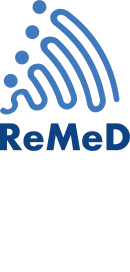This work package, led by Dublin City University and Vrije Universiteit Brussel, focuses on citizens and digital news audiences in democracies.
It recognises that citizens, as news consumers and users of news, have a critical role to play in how news functions in democracies, in mobilising public opinion and, in turn, in determining the strategies of political actors and communicators.
The work package aims to understand how citizens consume news content and interact with news outlets, including social media platforms, and to point to ways to improve relations between citizens, media and communication technologies.
Our research is based on an initial statistical analysis of citizens’ news repertoires Europe-wide, to build a picture of consumption according to socio-demographic profiles, to chart the changes in consumption over recent years, and to identify those factors that influence people’s evolving news use.
Recognising perceived threats to the quality of news provision in the digital media landscape, we are particularly concerned with misinformation and extremism, and, more widely, with polarising content affecting democratic deliberation.
We investigate, through interviews and close observation across selected countries in this phase of our research, how citizens respond to developments in news, and how they adapt their practices of consumption, such as their sources of news and information, to cope with intrusive, unsettling, untrustworthy and polarizing information.
The understanding and knowledge gained in the first two phases outlined above will inform the development, alongside news users, of media literacy strategies aimed at achieving more democratically appropriate and diverse news sources. This phase will be carried out through the hosting of citizen laboratories inviting members of younger and marginalised audience groups to co-create media literacy interventions together with researchers and experts.
Finally, and based on the preceding elements of research and citizen interaction, we aim toward the production of a media literacy toolkit to foster awareness of issues in news and information quality and help citizens cope with varying kinds of toxic news.
